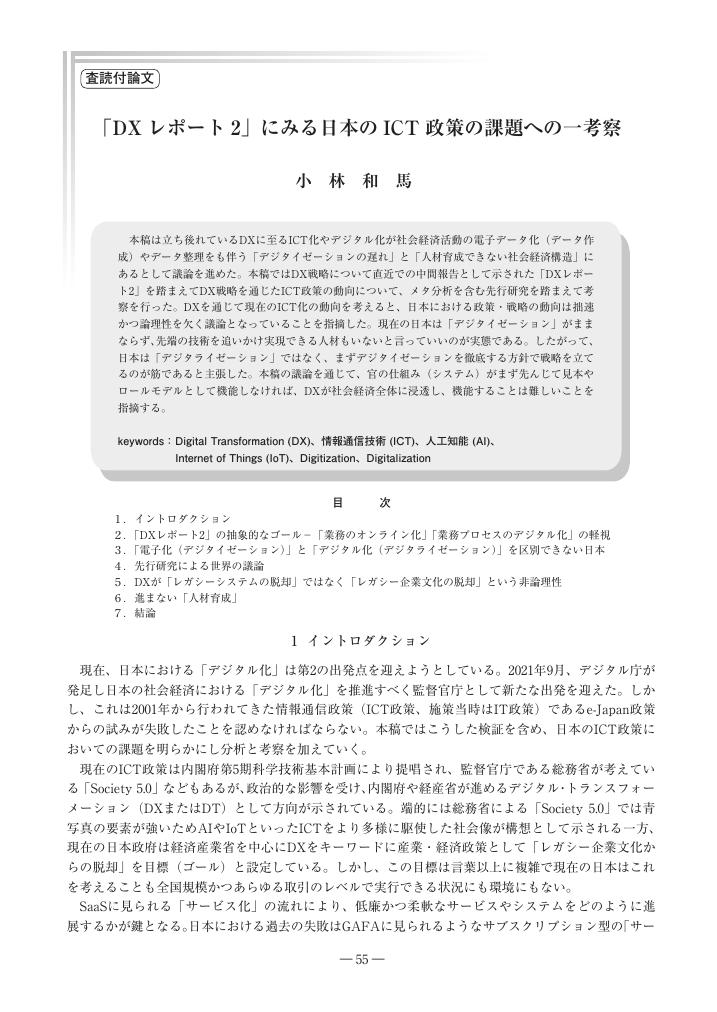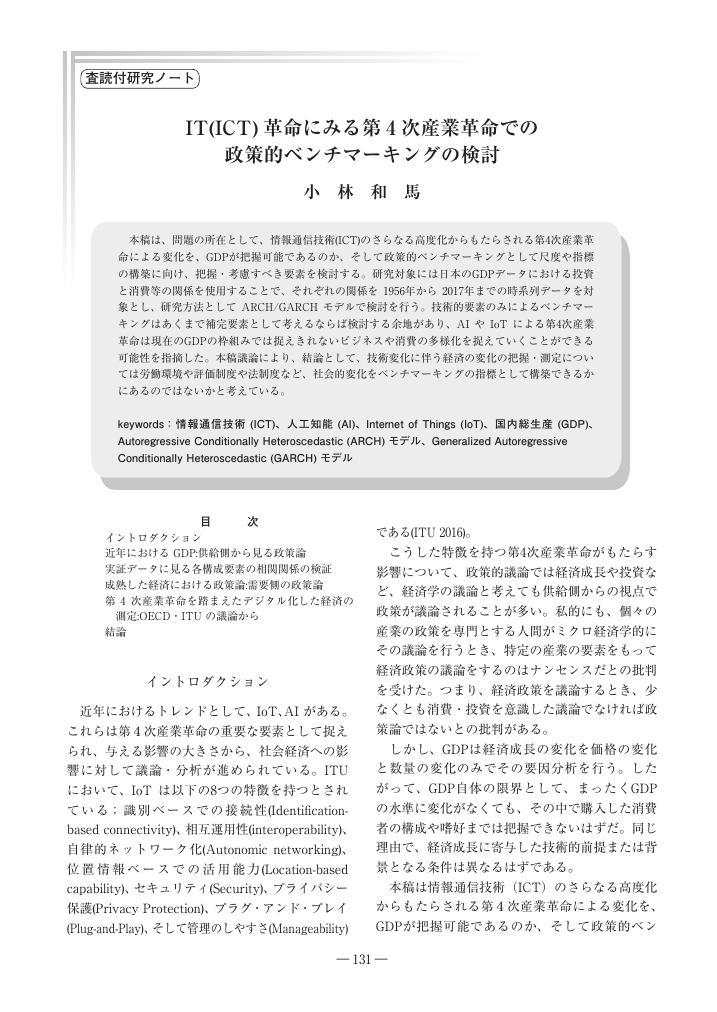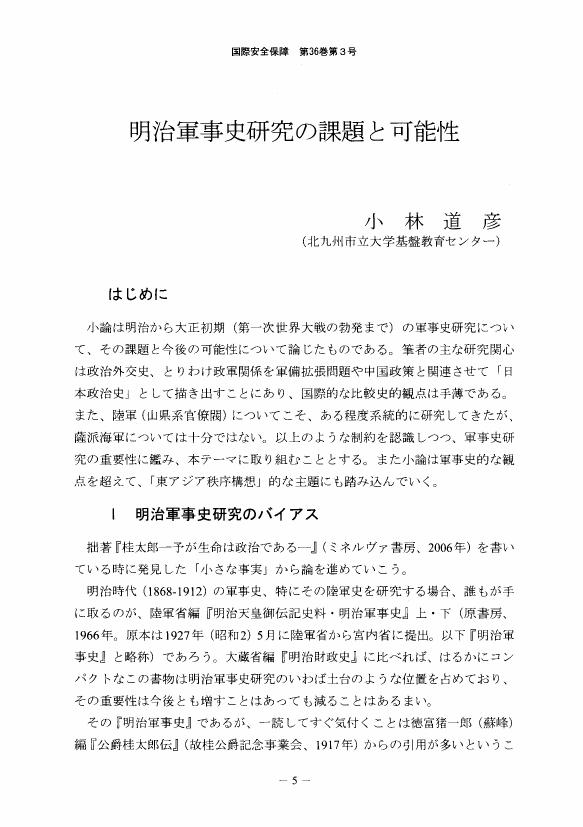- 著者
- 吉田 昌幸 小林 重人
- 出版者
- 経済社会学会
- 雑誌
- 経済社会学会年報 (ISSN:09183116)
- 巻号頁・発行日
- vol.38, pp.144-160, 2016 (Released:2021-04-01)
This paper presents the results of a gaming simulation study into how people change their consciousness and behavior as a result of using different forms of community currencies. In recent years, some studies have examined the effect of community currency use in promoting the local economy and community. These studies suggest that, in order to promote the use of community currency, it is important to form a positive feedback system between consciousness and behavior. However, these existing studies have not considered the difference of the effects brought about by different forms of community currency. In this study, we consider changes in consciousness and behavior that relate to two forms of community currency: paper currency and LETS (Local Exchange and Trading System) currency. We initiated a Community Currency Game, in which we analyzed subject behavior and subjects completed questionnaires. The results are as follows: Paper currency has a larger amount of flow and participants are encouraged to circulate. However, this type of community currency does not form the value of monetary diversity and community oriented value so much. LETS currency forces participants to create opportunities in order to use community currency and create value based on their regional contribution and monetary diversity. However, this type of community currency tends to lead to a closed circle.
1 0 0 0 OA 「DXレポート2」にみる日本のICT政策の課題への一考察
- 著者
- 小林 和馬
- 出版者
- 学校法人 東洋大学現代社会総合研究所
- 雑誌
- 現代社会研究 (ISSN:1348740X)
- 巻号頁・発行日
- vol.2021, no.19, pp.55-64, 2021 (Released:2022-05-18)
1 0 0 0 OA IT(ICT)革命に見る第4次産業革命での政策的ベンチマーキングの検討 研究ノート
- 著者
- 小林 和馬
- 出版者
- 学校法人 東洋大学現代社会総合研究所
- 雑誌
- 現代社会研究 (ISSN:1348740X)
- 巻号頁・発行日
- vol.2018, no.16, pp.131-138, 2018 (Released:2019-10-31)
- 著者
- 小林 亮介
- 出版者
- 内陸アジア史学会
- 雑誌
- 内陸アジア史研究 (ISSN:09118993)
- 巻号頁・発行日
- vol.29, pp.158-159, 2014-03-31 (Released:2017-10-10)
- 著者
- 小林 博志
- 出版者
- 東北社会学研究会
- 雑誌
- 社会学研究 (ISSN:05597099)
- 巻号頁・発行日
- vol.102, pp.123-146, 2018-12-28 (Released:2021-11-24)
- 参考文献数
- 11
本稿は、農協婦人部の機関誌的存在であった雑誌『家の光』を通して、農村での家事テクノロジーシステムの成立について考察する。家事テクノロジーシステムとは、工業製品で構成された家事労働のための道具集団を意味する。水道普及率の低さから農村に残存した「水汲み」という家事労働では、戦前からの農事電化を背景に普及した配電システムを前提に、一九五〇年代中頃から導入された電動ポンプが、新たな給水システムを成立させる。この成立を前提に一九六〇年代初めから普及が加速する洗濯機の導入により、新たな洗濯システムが成立する。既存のシステムを前提とした「モノ」の導入が新たなシステムを成立させることで、次の「モノ」の導入を促す。このシステム成立の連鎖により「モノ」が普及していく。規格化された工業製品が、都市と同様に農村にも普及することで、双方の生活者の中に「世間の標準」という共通の生活意識が形成される。それは、都市と農村が共有しうる「人並み」という生活水準意識の形成であり、今日の格差問題を「問題」として認識する原型となる。
1 0 0 0 OA 現代農村と農本主義
- 著者
- 小林 一穂
- 出版者
- 東北社会学研究会
- 雑誌
- 社会学研究 (ISSN:05597099)
- 巻号頁・発行日
- vol.100, pp.61-82, 2017-09-14 (Released:2021-12-12)
- 参考文献数
- 17
現代農村では担い手の問題が重要になっている。本稿では、農業者の主体的な起動力となる行動理念のあり方を模索することによって、現代農村の困難な状況を突破する糸口を見出そうとする。 これまでの農本主義論を再検討して、農業者の日常意識である農本意識の契機として、自然との融和、勤労の重視、家族中心、地域的協同を抽出した。農本意識を体系化させ固定化したイデオロギーである農本主義においては、この諸契機が、自然没入主義、勤労至上主義、家父長主義、「共同体」主義、へと変質させられる。この実例として現代の農本主義者をとりあげて検討した。 農業者の生産と生活に妥当しつつ体系化されて不断に再構成される農本思想は、自然、勤労、家族、協同、という諸契機から構成される。この農本思想が農業者の行動理念として機能することが、現代農村の家族経営と村落社会の立て直しにとって重要である。
1 0 0 0 OA 雑誌『家の光』にみる嫁の意識変化 高度経済成長期における兼業化の進展を背景として
- 著者
- 小林 博志
- 出版者
- 東北社会学研究会
- 雑誌
- 社会学研究 (ISSN:05597099)
- 巻号頁・発行日
- vol.99, pp.157-180, 2017-02-28 (Released:2021-12-18)
- 参考文献数
- 11
本稿では、高度経済成長期における農家の嫁の意識変化を、JAの家庭総合誌『家の光』から考察する。高度経済成長期には、営農の機械化・施設化による営農経費の増大と都市化による生活費の増大が、農村の消費社会化を進行させ、これにより兼業化が加速する。夫の兼業により、営農の中心的役割を嫁が担うことで営農での地位改善がなされ、農協婦人部と結びついた生活改善運動の展開を背景に、営農での地位改善は家庭生活での地位改善へと連動する。結果として、消費と教育への関心を高める。これは、嫁の意識が近代家族的価値観へと変化した表れである。テレビ普及というメディア環境の変化が、この意識変化を加速させ、テレビが示す「人並み」のモデルを追い求めることで、農村の平準化が進行する。そして、この変化を促す要因の一つが、農村に存在した旧来の気質である。農村の社会的弱者であった嫁の地位改善とそれに伴う意識変化は、近代化の浸透が農村の家庭レベルにまで及ぶことを意味し、このことが本稿を通して明らかとなる。
1 0 0 0 OA 洞庭郡遷陵県の開発と秦の「地域統治」 人口移入と公田経営からみた
- 著者
- 小林 文治
- 出版者
- 公益財団法人 史学会
- 雑誌
- 史学雑誌 (ISSN:00182478)
- 巻号頁・発行日
- vol.130, no.4, pp.1-37, 2021 (Released:2022-04-20)
本稿は巴蜀地域と洞庭・蒼梧両郡への遷徙傾向の比較を出発点に、統一秦における洞庭郡遷陵県の開発の状況を検討する。岳麓書院蔵秦簡や里耶秦簡を見ると、巴蜀地域と洞庭・蒼梧両郡への刑徒や「従人」の遷徙例では①遷徙目的、②移動の禁止、③移送方法が共通している。これは洞庭・蒼梧両郡が置かれると、戦国秦において成立した巴蜀地域への遷刑が両地に援用されたことを示す。言い換えれば、新領土に外部から労働力を供給して開発を行うというモデルが巴蜀において完成し、それが洞庭・蒼梧郡に援用されたということになる。 洞庭郡遷陵県の移入人口を見ると、巴郡と南郡からの移入が多数を占める。この傾向は周辺郡がすでに秦の習俗が浸透して久しく、同時に土着の習俗が洞庭郡のそれに近いので、洞庭郡の開発に便利であり、さらに秦による新領土経営の経験が洞庭郡経営に利用できることが反映されていると言える。 刑徒の移入傾向を見ると、その多くが反秦行動に加担した者で、労働力として送られてきた者たちであった。彼らが遷陵県で主に従事していたのが公田の開発である。遷陵県の公田収入は県内で消費されていたが、消費量に対して遷陵県全体の生産量が少なく、他地域からの搬入に多くを頼らざるを得ない状況であった。洞庭郡への刑徒移送と公田経営は秦の六国統一後の「戦後処理」と統一秦の「新領土経営」を結びつける政策であるが、計画に比して実際は効果が上がっていなかった。本稿の検討結果はある地域における秦の統治過程を検討する際、郡を超える広域的な地域を想定し、検討することが重要であること、その時の歴史的事情が地域のさまざまな「活動」に影響を及ぼすことを示唆する。
1 0 0 0 OA LSE 社会学と J. A. シュンペーターの経済発展理論
- 著者
- 小林 大州介
- 出版者
- 経済学史学会
- 雑誌
- 経済学史研究 (ISSN:18803164)
- 巻号頁・発行日
- vol.62, no.2, pp.1-25, 2020 (Released:2021-08-27)
In this paper, the author examines the contents of lectures given by A. C. Haddon, E. Westermarck, and Sydney Webb that Schumpeter attended at the London School of Eco-nomics (LSE) in 1907. This paper uses as references the syllabus of the LSE at that time and written works by the lecturers. Most research on the sources of Schumpeterʼs ideas on economic development and socioeconomics has been conducted based on discussions of Marxist economic thought, the German historical school, and American economists. Little attention has been accorded to the LSE lectures attended by Schumpeter. Consequently, essential parts of Schumpeterʼs history of economic thought have been ignored. This paper addresses that deficit. It has been established that Schumpeter attended lectures at the LSE on ethnology and sociology given by, respectively, Haddon and Westermarck. However, Schumpeter not-ed in a footnote in his posthumous History of Economic Analysis that he also attended Webbʼs lectures on “methods of social investigation.” The present author has previously demonstrated that the LSE lectures delivered by Haddon and Westermarck may have enabled Schumpeter to overcome outmoded ideas of “evolutionism” (which assumed autonomous development and unilineal developmental stages derived from the Enlightenment) and thoughts of “natural law.” Close examination of the lectures delivered at the LSE support the authorʼs previous hypothesis. Further, that examination reveals that Webbʼs lectures delivered in October 1907 could have exerted a defining impact on Schumpeterʼs thoughts on economics. For example, in Webbʼs lecture plans, such items as “The great man as a ferment” and “Possibility of predicting effects of a given social environment on average humans in the immediate future” can be found. Those lectures at the LSE include many key points related to Schumpeterʼs basic as-sumptions about dynamics and economic development. JEL classification numbers: B25, B31, Z13.
- 著者
- 小林 正英
- 出版者
- 国際安全保障学会
- 雑誌
- 国際安全保障 (ISSN:13467573)
- 巻号頁・発行日
- vol.43, no.4, pp.97-100, 2016-03-31 (Released:2022-04-01)
1 0 0 0 OA 大野 直樹 著『冷戦下CIAのインテリジェンス――トルーマン政権の戦略策定過程』
- 著者
- 小林 良樹
- 出版者
- 国際安全保障学会
- 雑誌
- 国際安全保障 (ISSN:13467573)
- 巻号頁・発行日
- vol.41, no.4, pp.102-106, 2014-03-31 (Released:2022-04-07)
1 0 0 0 OA 政治とインテリジェンスの関係 ―我が国の制度の在り方に関する考察―
- 著者
- 小林 良樹
- 出版者
- 国際安全保障学会
- 雑誌
- 国際安全保障 (ISSN:13467573)
- 巻号頁・発行日
- vol.41, no.2, pp.81-98, 2013-09-30 (Released:2022-04-07)
1 0 0 0 OA 大学等におけるインテリジェンスに関する学術研究及び教育の充実
- 著者
- 小林 良樹
- 出版者
- 国際安全保障学会
- 雑誌
- 国際安全保障 (ISSN:13467573)
- 巻号頁・発行日
- vol.39, no.3, pp.40-49, 2011-12-31 (Released:2022-04-14)
1 0 0 0 OA NATOパートナーシップにおける対中東アウトリーチ ―協働的安全保障への道?―
- 著者
- 小林 正英
- 出版者
- 国際安全保障学会
- 雑誌
- 国際安全保障 (ISSN:13467573)
- 巻号頁・発行日
- vol.37, no.2, pp.115-138, 2009-09-30 (Released:2022-04-14)
1 0 0 0 OA 明治軍事史研究の課題と可能性
- 著者
- 小林 道彦
- 出版者
- 国際安全保障学会
- 雑誌
- 国際安全保障 (ISSN:13467573)
- 巻号頁・発行日
- vol.36, no.3, pp.5-23, 2008-12-31 (Released:2022-04-20)
1 0 0 0 OA 金子 譲 著『NATO―北大西洋条約機構の研究』
- 著者
- 小林 正英
- 出版者
- 国際安全保障学会
- 雑誌
- 国際安全保障 (ISSN:13467573)
- 巻号頁・発行日
- vol.36, no.3, pp.93-96, 2008-12-31 (Released:2022-04-20)
- 著者
- 小林 周
- 出版者
- 一般財団法人 日本国際政治学会
- 雑誌
- 国際政治 (ISSN:04542215)
- 巻号頁・発行日
- vol.2022, no.205, pp.205_94-205_107, 2022-02-04 (Released:2022-03-31)
- 参考文献数
- 38
The paper analyzes Middle Eastern countries’ foreign aid and military activities in African countries through the lens of Economic Statecraft (ES), the art of employing economic means to exert influence over other countries and thereby pursue geopolitical and strategic goals. Due to changes in the strategic environment, such as the United States’ withdrawal from the Middle East and the escalation of intra-regional conflicts, Middle Eastern countries have pursued foreign and security policies that place greater emphasis on their national interests. Arab states in the Gulf and Turkey are upping their foreign aid to Africa and establishing military bases at geopolitical chokepoints to expand their spheres of influence. The economic and military expansion of Middle Eastern countries into Africa also intensifies competition among various state and non-state actors.There have been studies on foreign aid to African countries and on the establishment of military bases by Middle Eastern countries. By examining these regional dynamics from the perspective of ES, this paper seeks to decipher the complex and multi-dimensional competition, confrontation, and cooperation. Additionally, the paper investigates the effectiveness of the ES as practiced by non-major powers, which is often overlooked, the impact of ES on regional politics and security, and the linkage with international order and international security.ES is frequently discussed in the context of great power politics and strategic competition, such as the US-China rivalry. However, the same is true for regional and middle powers that use economic means to pursue their geopolitical objectives. The distinction is that great powers such as the US, China, and Russia are exceptional in the scale of their military and economic clout in international politics. Therefore, to better understand ES, it is necessary to focus on tactics being employed at the regional level and the geopolitical shifts that arise. This paper outlines the debate on ES in/towards/from the Middle East and examines the trends and background of the pursuit of geopolitical goals linked to foreign aid, which has accelerated in recent years. Then, as a case study, this paper focuses on the Middle Eastern countries’ intervention in Sudan and the Horn of Africa region, as well as the competition among the regional countries. The intervention of Middle Eastern countries in Somalia and Libya is also analyzed to demonstrate that ES involves various actors, including unrecognized states and non-state actors.
- 著者
- 小林 昭三 興治 文子
- 出版者
- 日本科学史学会
- 雑誌
- 科学史研究 (ISSN:21887535)
- 巻号頁・発行日
- vol.52, no.268, pp.200-210, 2013 (Released:2021-07-12)
- 被引用文献数
- 1
We found varieties of students' notebooks on science in Middle Meiji Era(MME) in various regions of Japan. By investigating these historically valuable primary documents, i. e. "Buturi Hikki and Kagaku Hikki", we gained a deep insight into Japanese science education and clarified those real situations in MME. We also revealed what and how science was taught by using science text books and experimental tools shown in those notebooks in MME. Especially important results of those are verification of the real usage of the "Shogakko Seitoyo Butsurisho" "Physics for Elementary School" Students in English, by various note or memo written by pupils (or teachers) of primary school of Niigata, Saitama, Gunma, etc. in 1885-1897 of MME. Furthermore, we found how Japanese teachers developed their own styles of science teaching based on Japanese culture and how they cached up to the top level of the worlds by worldwide connections and by using hands-on tools in MME for learning actively.
- 著者
- 興治 文子 小林 昭三
- 出版者
- 日本科学史学会
- 雑誌
- 科学史研究 (ISSN:21887535)
- 巻号頁・発行日
- vol.52, no.268, pp.240-248, 2013 (Released:2021-07-12)
- 被引用文献数
- 1
Modern science education was started in early Meiji era. It is said that the purpose of science education at the compulsory education level had changed qualitatively in middle Meiji Era. Public laws and published text- books were used to study this change, but it was not still clear what happened in the real science classrooms. We discovered students' science notebooks at middle Meiji Era in various regions on Japan. These notebooks are primary resources to reflect on science classes in middle Meiji Era. We analyzed these notebooks and found that teachers were using inventive approaches to promote students' understanding of science concepts.
1 0 0 0 OA 蒸気機関技術史概論
- 著者
- 小林 学
- 出版者
- 日本科学史学会
- 雑誌
- 科学史研究 (ISSN:21887535)
- 巻号頁・発行日
- vol.52, no.265, pp.1-4, 2013 (Released:2021-07-14)










